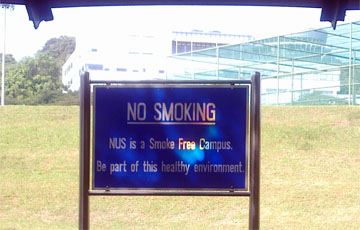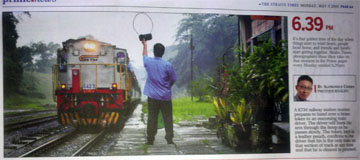|
| |
|
| |
|
|







|
|
TCHS 4O 2000 [4o's nonsense] alvinny [2] - csq - edchong jenming - joseph - law meepok - mingqi - pea pengkian [2] - qwergopot - woof xinghao - zhengyu HCJC 01S60 [understated sixzero] andy - edwin - jack jiaqi - peter - rex serena SAF 21SA khenghui - jiaming - jinrui [2] ritchie - vicknesh - zhenhao Others Lwei [2] - shaowei - website links - Alien Loves Predator BloggerSG Cute Overload! Cyanide and Happiness Daily Bunny Hamleto Hattrick Magic: The Gathering The Onion The Order of the Stick Perry Bible Fellowship PvP Online Soccernet Sluggy Freelance The Students' Sketchpad Talk Rock Talking Cock.com Tom the Dancing Bug Wikipedia Wulffmorgenthaler |
|
bert's blog v1.21 Powered by glolg Programmed with Perl 5.6.1 on Apache/1.3.27 (Red Hat Linux) best viewed at 1024 x 768 resolution on Internet Explorer 6.0+ or Mozilla Firefox 1.5+ entry views: 2182 today's page views: 584 (19 mobile) all-time page views: 3386625 most viewed entry: 18739 views most commented entry: 14 comments number of entries: 1226 page created Fri Jun 20, 2025 13:58:40 |
|
- tagcloud - academics [70] art [8] changelog [49] current events [36] cute stuff [12] gaming [11] music [8] outings [16] philosophy [10] poetry [4] programming [15] rants [5] reviews [8] sport [37] travel [19] work [3] miscellaneous [75] |
|
- category tags - academics art changelog current events cute stuff gaming miscellaneous music outings philosophy poetry programming rants reviews sport travel work tags in total: 386 |

| ||
|
- academics - That's the qualifying examinations over, and hopefully I won't have to take them again. You know how it is - there appears to be a lot to talk about the papers before they actually happen, but once it's done and dusted, it seems that there isn't too much to it after all. A brief introduction: the quals are examinations that a graduate student has to pass, before he becomes a candidate proper. The objective of the examinations is to test the breadth of the prospective candidate's knowledge, and as such no in-depth knowledge in any particular area is required or assumed, although the examiners' definition of "in-depth" may not be what the candidate thinks it is. Frankly speaking, however, some of the qualifying examination questions are indeed very simple. Unfortunately, there are also those that I have not managed to answer to my own satisfaction during revision, so it is safe to say that the difficulty varies greatly (may be subjective). On the plus side, it seems that getting a set percentage of the total score is sufficient for a pass, and that there is no bell curve. Then again, it is not quite clear what that percentage is, and how generous the markers are in doling out points.  Aw, shucks Some advice from a senior was that smoking is generally more possible for the systems QE, as opposed to the theory one, which I found to be true. As can be seen, the act is not encouraged. As the theory paper went, I felt I did alright for algorithms, despite forgetting the parenthesis-matching method in linear time for finding the maximum number of overlapping intervals (to make it worse, I think a version came out all the way back in CS1102 all those years ago), which goes to show that no matter how much time is given, I could always use more. As algorithms is one of the areas that I enjoyed more, this made me wonder if one likes something because one is ok at it, or one becomes alright at something because one likes it. Probably both. Theory of computation, as usual, had short questions triggering long thought processes. A construct-a-finite-state-machine question came out as 30% of the total, which would generally be good news, since they are often relatively simple. This one however came out of left field: "Construct a deterministic finite automaton which accepts exactly n(n-1)(n-2)/6 + n(n-1)/2 + 1 many members of {0,1}^n for every n". (N.B. The past year papers are publicly available, so I take the liberty of reproducing the question here) I was stumped for a good while - intuitively, I thought, how could a finite number of states encompass any number n? - until I realised that such an FSM might actually be constructed by observing the growth pattern of the formula given, and it does not even need to have all that many states (hopefully I did understand it correctly). This was probably the first of this class of question I had encountered, so I suppose I got lucky there. As for Logic and AI, I must embarrassingly admit that it gave me the most cause for concern out of all the six QE questions I attempted, not the least because I had neglected to revise Hoare logic, and it wasn't even mentioned in the textbook I had (oops). This meant that I had to try and infer how Hoare logic worked from the given questions, which was not exactly fun. Well, well. There was then a week's break before the systems paper, which ended up a breeze compared to theory, which was surprising since I consider myself slightly more of a theory guy. (Then again, as tpk noted, this might mean that I didn't know that I didn't know the subject...)  Wikipedia - the authority Unwilling to repeat the Hoare fiasco, I belatedly discovered that I had sold off all my textbooks relating to systems topics. I had to think quickly - where could I get my hands on a comprehensive overview of each of the subtopics, each not too long, yet containing all the essentials? The answer: Wikipedia. In fact, in my research on the past year questions, it was one of my most referred-to sources, bolstered by the occasional academic website or research paper. Yes, Wikipedia may not exactly have the cachet of Knuth, but I've found it to be reliable enough. It was then straightforward to collate all the relevant Wikipedia pages into a single PDF file with PDFCreator, which turned out to be an average of 200-plus pages per subject, or near a thousand pages for all four subjects (which would make a fair-sized textbook). However, by printing eight to a page, double-sided, one can get a relatively compact representation of the matter. Every once in a while, it helps to remember that the stuff that one learns can actually apply to other fields too. Take token passing in networks for instance. Extract from The Straits Times: "A KTM railway station master prepares to hand over a brass token to an oncoming train driver. The driver will hook his arm through the hoop as he passes slowly. The token, kept in a leather pouch, confirms to the driver that his is the only train on that section of track at any time and that he is cleared to proceed."  Token of appreciation What is more, this photo actually drew a forum letter from the Prime Minister himself, who said that "...after more than 50 years, I discover that it actually contains a brass token, and is a safety measure to ensure that the train with the token is the only one on that two-way section of track!". Live and learn, I suppose. More testy events surfaced in the forum, with the PM soon to address the issue of the weightage of mother tongue in the PSLE. First questions first: Cui bono? The answer appears obvious: Students who are relatively stronger in the other subjects relative to their mother tongue will benefit (assuming that the weightage taken from the mother tongue component is distributed evenly), and vice versa. This is if one views the PSLE as a zero-sum game, the main objective of which is to gain admittance to a good secondary school (and with through-train programmes being so popular nowadays, maybe even a good JC), since the number of vacancies in each school is fixed. As with many such changes, it is often that the positives are emphasized, and any negatives downplayed (e.g. by showcasing a student who had been doing very badly in his mother tongue but is now saved, while not giving any attention to the student who had excelled in his mother tongue, but just above average in his other subjects, and thus has his dreams of entering a top school dashed). As if on cue, a forum letter questioned the "odd approach" of taking a "defeatist" stance towards "equipping (students) with the necessary soft and hard skills", which is "contrary to the values of resilience and tenacity the education system is trying to inculcate in the first place", and then urges readers to think about pupils from Chinese-speaking families. Cui bono indeed. The writer then argues that "...our education system prides itself on meritocracy, and reducing the weighting of mother tongue will undoubtedly go against this spirit". Does it really? In the sense that our current weightage of subjects is "fairer", then perhaps. However, one could argue for any number of components; for example, isn't aesthetics important? Should arts and craft not then contribute a nominal weightage, say 10 of the 300 points? Health might contribute more to quality of life than any other subject, and Singapore just got named as the world's number two Sports City (I have absolutely no idea how that happened) so why not grade P.E. too? Here, some parents might complain that their kids might not have physically matured yet, but come to think of it, don't kids mature mentally at different rates too? Cui bono. The second question is whether this is a race to the bottom; since previous batches of students have more or less survived the syllabus somehow (despite protestations from those who hated mother tongue and had it drag them back), why "solve" the problem by making things easier (then again, it's been happening for some time in National Service)? This can probably be answered from the perspective of utility - children may be made to learn any number of things, and the process of learning surely builds resilience, tenacity, discipline, perseverance and any number of positive adjectives. Back to the arts, it is completely possible to focus a child on, say, drawing realistic portraits, and if the child goes about it diligently, he will pick up those values. The trouble is that, art in general is not especially monetizable (yes, yes, if you're Picasso you can scratch out an abstract painting of your naked mistress in a day and have it sell for a hundred million dollars, but firstly, for every Picasso there is a veritable legion of starving artists [key example: Hitler], and secondly, it is not uncommon for an artist's works to sell for lots of money only after he is dead)  You are Picasso and I claim my many million dollars The point to be made is: Any number of subjects can inculcate good values, with the right attitude; so, the main determinant of what subjects to select for compulsory education would be how useful they are. English is undoubtedly the lingua franca of the world, the sciences are the bedrock of development, and mathematics is the queen of the sciences (taking the title from theology, which held it in the Middle Ages), and overall very nice to know whenever money is concerned. Could a student gifted in English, Mathematics and Science do well in this society? Almost certainly, other things being equal. What about Chinese, Mathematics and Science? Why not? Heck, if it comes down to that, one could fail all four subjects and possibly still do well in life - it is just a matter of probability. Having a good command of at least one language should be critical, but which one? Frankly speaking, English is probably more portable, which might be deduced from the fact that all other non-language subjects are taught in English, which is a consequence of it being the language of scholarship (students could thank their lucky stars they no longer need to learn Latin). It is however no secret that the mother tongue policy was introduced, at least in part, with an eye on China (and perhaps India etc), with bilingual citizens conversant in both tongues having an advantage in doing business in those rising cultures. Then again, as somebody wrote, it might be more likely that the Chinese and Indians would be talking in English. Shanghaiese schools dedicate 2500 hours a year to English, for instance, which is a whole lot when one considers that there are only 8760 hours in a year. My verdict? Each side chooses a champion, and they duel in a no-holds-barred cage match at one of the new IRs. No? Maybe upgrade the Special stream to Absolutely Extraordinary, Express to Supersonic, and Normal (Academic) and Normal (Technical) to Very Good (Academic) and Even Better (Technical). Alright, being serious, my personal opinion is that the kids should simply get on with it and quit whining, but that's just me; when a relative measure is chosen, not everybody can "win" - it should be a theorem or something. Next: EPL Over
Linkback by
|
||||||||||
 Copyright © 2006-2025 GLYS. All Rights Reserved. |
||||||||||